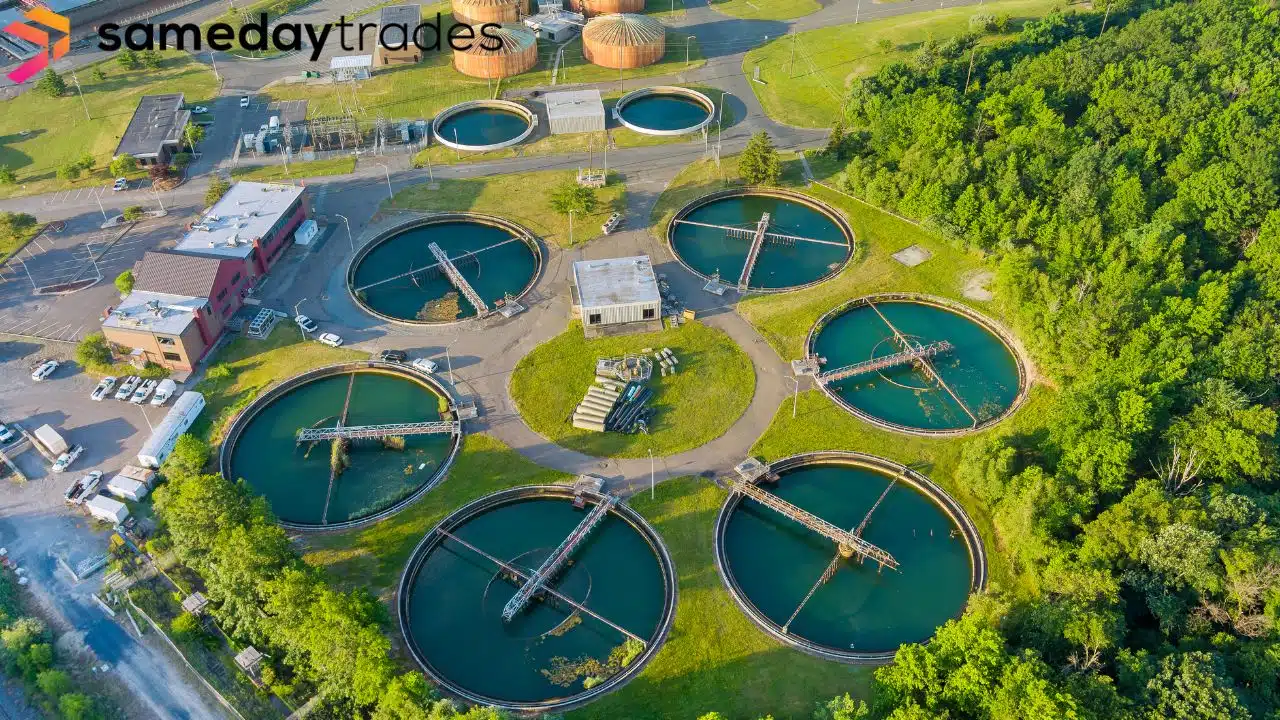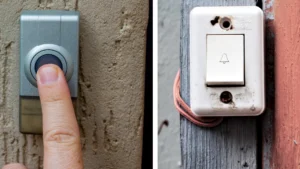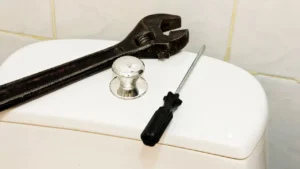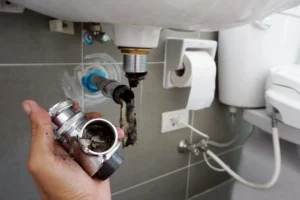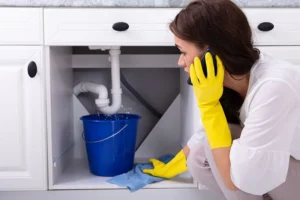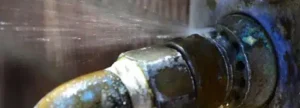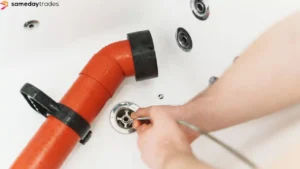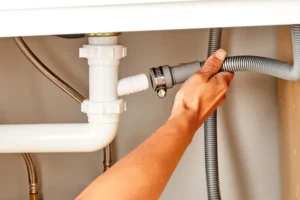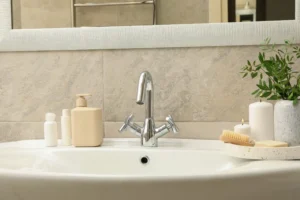If you’ve ever winced at your water bill or heard the not-so-soothing sound of a leaky tap echoing in the middle of the night, you’re not alone. In Perth, where water is a precious resource and long dry spells are part of life, every drop really does count.
We’re not talking about extreme drought warnings or scary environmental campaigns—just good old-fashioned common sense and a few plumbing tweaks that could save you a whole lot of water, money, and headaches. Whether you live in a heritage home in Fremantle or a modern build in Ellenbrook, here’s how to get on top of plumbing-related water waste before it trickles out of control.
Common Plumbing Issues That Waste Water
Let’s start by lifting the lid on the usual suspects. Plumbing-related water waste often flies under the radar until the damage is done. These culprits are sneaky and often silent.
Leaky Taps and Dripping Faucets
That slow, steady drip might seem harmless, but it adds up—big time. Just one leaky tap can waste over 20,000 litres of water a year. That’s enough to fill a small backyard pool or take over 250 showers.
Running Toilets
Toilets can be one of the biggest offenders. A worn-out flapper valve or an unsealed flush valve can lead to a constantly running cistern that silently drains away hundreds of litres every day. You may not hear it, but your water metre sure will.
Burst or Cracked Pipes
Old plumbing systems in older suburbs like Subiaco or Bayswater are especially vulnerable to pipe deterioration. A small crack can go unnoticed under your house or in your yard and lead to not just water waste but water damage too.
Hidden Underground Leaks
Here’s the real kicker: underground leaks can go undetected for months. You won’t see puddles, but your garden may mysteriously stay green—even during dry spells—and your bill may start creeping up with no obvious reason.
Signs You Might Be Wasting Water Without Knowing
Sometimes your plumbing gives away a few clues. The trick is knowing what to look (and listen) for.
- A Sudden Spike in Your Water Bill: If your usage hasn’t changed but your costs have, that’s a big red flag.
- Damp or Mouldy Patches: Moisture on walls, ceilings, or floors could mean there’s a leak behind the scenes.
- The Sound of Water Running When Everything’s Off: A faint trickling sound can mean trouble.
- Spinning Water Metre: Check your water metre when everything’s turned off. If it’s moving, something’s leaking.
Practical Ways to Reduce Water Waste at Home
Here’s the good news—most of these issues are fixable, and some of the best solutions are easy and affordable.
Fix Leaks Promptly
Leaks don’t go away on their own. The longer you leave them, the worse (and more expensive) they become. Routine plumbing checks every few months can save you from a nasty surprise later. A quick DIY check around taps, toilets, and pipes can be a weekend task—just don’t forget your torch and a good playlist.
Install Water-Saving Fixtures
Modern fixtures are smarter than ever. Low-flow showerheads, dual-flush toilets, and tap aerators can dramatically reduce your household’s water use without changing your lifestyle. If you’ve got older fittings, consider upgrading—it’s one of the easiest wins for your water-saving efforts.
Upgrade to Efficient Appliances
Look out for the WELS rating (Water Efficiency Labelling and Standards) when buying dishwashers or washing machines. A 4-star or higher appliance can save thousands of litres a year—and they’re often better at cleaning, too.
Use Timers and Flow Restrictors
A five-minute shower is fine—until it becomes a 15-minute steam session. Shower timers and flow restrictors help you stay on track and avoid excess water use. They’re cheap, easy to install, and great for kids who like to hold bathroom concerts.
Build Water-Smart Habits
This one costs nothing but makes a big difference:
- Turn off taps while brushing teeth.
- Use a bowl to wash veggies instead of letting the tap run.
- Collect the cold water that runs before the hot water kicks in, and reuse it on plants.
Plumbing Practices for Garden and Outdoor Areas
In Australia, a significant chunk of household water goes into gardens—and in Perth’s hot climate, this is where waste can sneak up fast.
Drip Irrigation Over Sprinklers
Sprinklers are easy but not always efficient. Drip irrigation systems deliver water directly to the roots and drastically cut down on evaporation, especially during summer.
Check Outdoor Taps and Hoses
Leaky hoses and fittings in the garden are often ignored. A worn rubber washer or cracked tap can leak all day long without you noticing—until your bill arrives.
Use Rainwater Tanks
Tanks aren’t just for rural areas. Even in urban Perth, small tanks can be connected to toilets or laundry systems. With some rainfall and good use, you can reduce your mains water usage by a noticeable margin.
Choose Native Plants
Kangaroo paws, bottlebrushes, and other WA natives are naturally drought-resistant. They look great, attract local birds, and thrive with less water—what’s not to love?
When to Call a Professional
Some jobs are better left to the experts. While DIY has its place, professional plumbers can help with:
- Detecting hidden leaks using specialised equipment
- Replacing corroded or cracked pipes
- Upgrading entire systems to more efficient ones
- Ensuring compliance with local water regulations
If you’re unsure or dealing with persistent plumbing issues, getting help from local plumbers in Perth is often the most time- and cost-effective option. They know the area, understand local conditions, and can usually spot the source of a problem quicker than a weekend warrior with a wrench.
Local Water-Saving Rebates and Resources
Did you know Perth homeowners have access to a range of water-saving incentives?
Water Corporation’s Waterwise Programme
The Waterwise programme helps households cut down on waste through education, rebates, and free services. Some suburbs even qualify for free showerhead swaps or irrigation system checks.
Rebates for Efficient Appliances
Check with your local council or the WA government for rebate opportunities when purchasing water-saving devices. Many initiatives reward residents for upgrading to water-efficient fixtures.
Online Tools and Calculators
Websites like watercorporation.com.au offer online water usage calculators to help you understand where your water’s going—and where you can cut back.
Long-Term Benefits of Reducing Water Waste
Reducing water waste isn’t just about doing the right thing—it’s also about long-term gain. Here’s what you stand to win:
Lower Water Bills
Fewer leaks and more efficient water use mean lower costs every billing cycle. The savings might not make you rich, but they’ll add up over time.
Reduced Environmental Impact
Using less water helps protect WA’s limited water sources and reduces the strain on our already stressed systems—especially during peak summer demand.
Improved Property Value
Modern plumbing and water-efficient systems can be a selling point. Potential buyers appreciate homes that are both eco-friendly and cost-effective to run.
Fewer Plumbing Emergencies
Proactive maintenance now means you’re less likely to face burst pipes or flooded bathrooms down the track. Trust us—it’s easier to tighten a washer than mop a floor at 2 AM.
Final Thoughts
Reducing plumbing-related water waste in Perth doesn’t require massive changes. A few tweaks here, a little awareness there, and the occasional call to a professional can go a long way in preserving one of our most precious resources.
It’s not about doing everything perfectly—it’s about doing a few small things consistently. So, next time you hear a drip, don’t just ignore it. It might be the sound of water—and money—going down the drain.
FAQs
How do I know if my plumbing is wasting water?
Start by monitoring your water bills. Sudden increases without a change in usage are often a sign. You can also check your water metre when everything is off—if it’s moving, something's leaking.
Are water-saving showerheads actually effective?
Yes. Modern designs maintain good water pressure while significantly reducing flow, so you’ll barely notice a difference in your showers—but your water use will drop.
Can a plumber help me reduce water waste?
Absolutely. A licenced plumber can audit your plumbing system, fix existing leaks, and recommend upgrades to more efficient fixtures or appliances.
What’s the best way to check for hidden leaks?
Turn off all water-using appliances and check your metre. If the metre ticks over, there’s likely a hidden leak. You can also listen for quiet hissing or dripping sounds around pipes and walls.
Do Perth homeowners get rebates for installing water-efficient appliances?
Yes. Through the Waterwise programme and other government initiatives, rebates are often available for qualifying appliances and fixtures. Always check current offers on your local council’s website.

